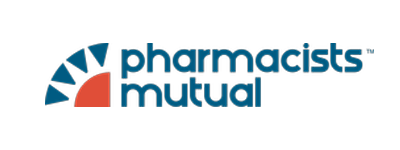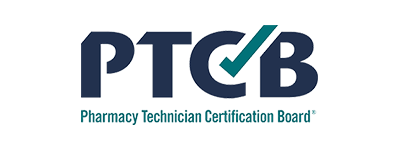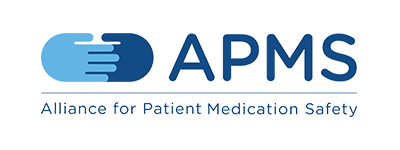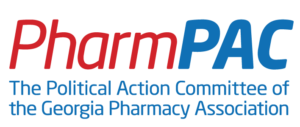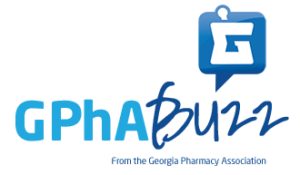Legislative update: 2019 weeks 10-11
Weeks 10 & 11
Weeks 10 & 11, while dramatic, were ultimately good ones for GPhA priority legislation. Week 10 saw HB 323 (update to pharmacy patient practice act) move through committee with passage in the Senate in Week 11. Not to be outdone, HB 233 (Pharmacy anti-steering) made up ground in week 11 via a unanimous vote in the Senate HHS committee after a contested hearing, flying through rules, and receiving unanimous support via a Senate floor vote. With one day remaining in legislative session, all that remains for both of these bills is to be agreed upon in the House.
The resistance has been tremendous on HB 233, with insurer, Medicaid managed care organizations, and pharmacy benefits manager lobbyists pulling out all of the stops in an effort to kill this legislation. Yet, despite the all out blitz to kill HB 233, the bill remains in a strong position to make its way from the legislature to the governor’s desk. The reason for that is you. GPhA members have stepped up like never before and have made their voices heard. For that, I cannot thank you enough. Also, a special thank you to Jennifer Shannon, Loren Peirce, and Ross Hays for having the courage to step up and speak on behalf of their patients and their profession, and who did so eloquently and passionately.
HB 63
Rep. Cooper’s step therapy legislation, this bill was favorably reported via substitute by the Senate Insurance & Labor Committee in week 10 and it passed on the senate floor in week 11. It now awaits agreement by the House.
HB 213
Rep. Corbett’ Hemp Farming Act was favorably reported out of the Senate Agriculture and Consumer Affairs Committee in Week 10; and was passed by the Senate and agreed to by the House in Week 11.
HB 290
Rep. Cooper’s bill providing for a pilot program to offer preexposure prophylaxis drug assistance or services to persons at risk of being infected with HIV was favorably reported by the Senate HHS Committee in week 10 and passed the Senate in week 11.
HB 324
Rep. Gravely’s update to Haleigh’s Hope Act (low THC oil) passed the Senate Regulated Industries and Utilities Committee via substitute in week 11. The substitute contained significant material changes to the bill including (1) the creation of a state commission that would have the authority to purchase low THC oil; (2) potential of Georgia University System to grow, cultivate, and research low THC oil; (3) the reduction to one class 1 and one class 2 producer licenses; (4) the allowance of 10 safe access retail licenses; (5) the requirement that any dispenser have a pharmacist employed or under contract to be made available to patients needing consultation; and (6) the ability of retail pharmacies to obtain a nontransferable specialty dispensing license to dispense low THC oil upon promulgation of rules by the Georgia Board of Pharmacy.
GPhA has remained engaged on the issue of low THC oil and the need for pharmacists to be made available to patients for consultation and is encouraged that the substitute contemplates a critical role for pharmacists in that regard. With the many significant changes to the legislation via the substitute, this bill will be going to conference committee to see if an agreement can be worked out.
HB 483
Our own Rep. Stephens annual drug update legislation was favorably reported by the Senate HHS Committee in week 10 and passed the Senate in week 11. It now awaits the Governor’s signature.
HB 551
Rep. Hill’s legislation dealing with the regulation of Kratom was favorably reported by the Senate HHS Committee, passed the Senate, and was agreed to by the House in week 11.
SB 103
Sen. Tillery’s legislation contemplating Medicaid waivers was favorably reported by the House Special Committee on Access to Quality Health Care in week 10, passed the House in Week 11, and was signed into law by Governor Kemp in Week 11. While this is the beginning of a long process to obtain waivers, it is a promising step and GPhA will continue to montior the process closely.
SB 115
Senator Unterman’s bill contemplating telemedicine licenses being issued to physicians who are licensed in other states passed the House via substitute and was agreed upon by the Senate, all in week 11. Additionally, and more pertinent for pharmacy, language from Rep. Stephen’s bill (HB 214) removing the requirement that a physician entering into a vaccine protocol agreement with a pharmacist must be in the same health district was added into this legislation. This is a positive development for multiple location pharmacies, streamlining the process and saving money.
SB 118
Sen. Unterman’s TeleHealth Act contemplating, amongst other things, a prohibition on insurers requiring insureds to use telemedicine, and to provide for pay equity for providers using telemedicine, passed the House via substitute and was the substitute was agreed upon by the Senate, all in week 11.
SB 121
Sen. Walker’s PDMP revision bill passed the House in week 10.
SB 142
Sen. Walker’s bill requiring fully insured plans include a statement saying so on health insurance identification cards was favorably reported by substitute in Week 11.

